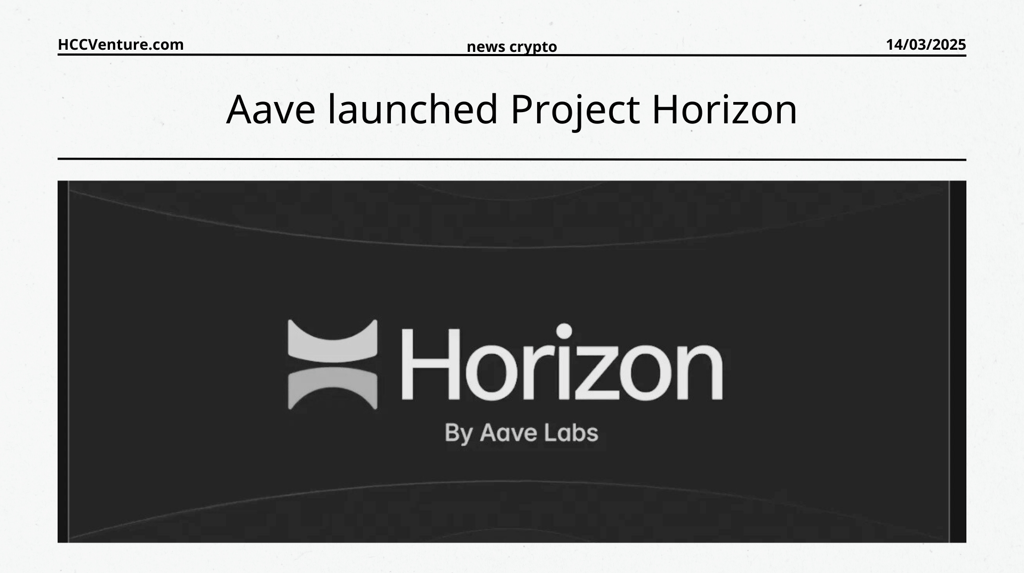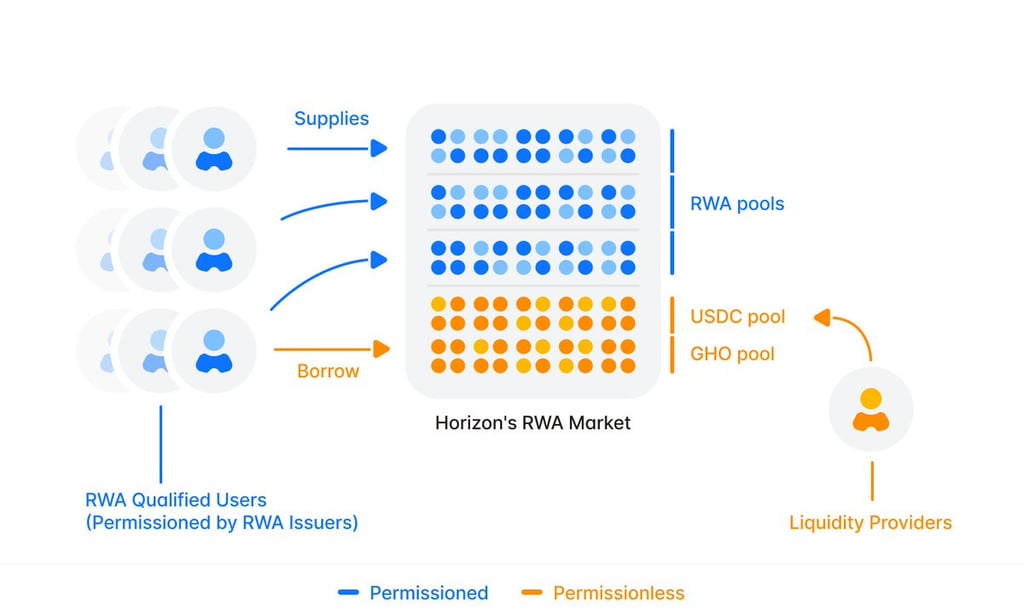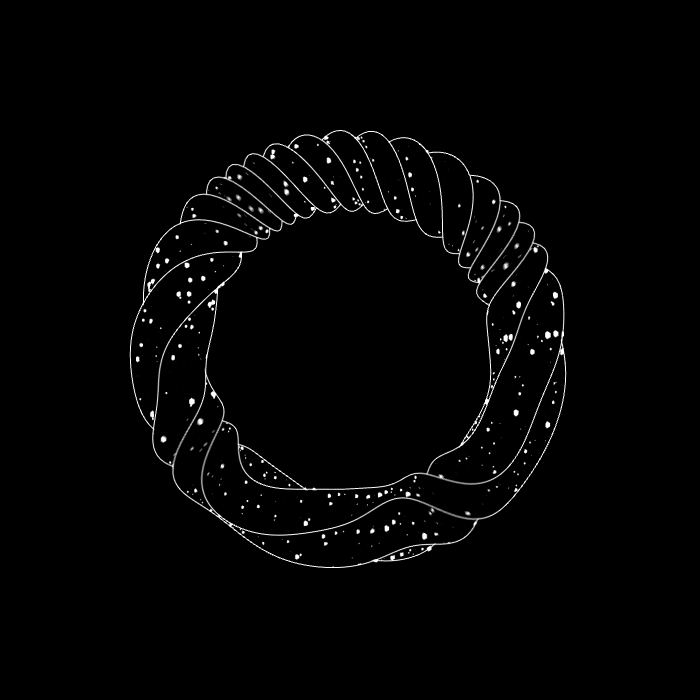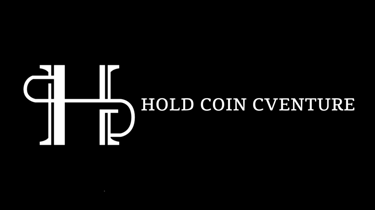Aave Launches Project Horizon – A Strategic Step in Integrating RWA into DeFi
On March 13, 2025, Aave Labs, the team behind the leading decentralized finance (DeFi) protocol Aave, announced a strategic initiative called Project Horizon. This is an important step towards accelerating the integration of Real-World Assets (RWA) into the DeFi ecosystem, specifically targeting traditional financial institutions.
3/14/20254 min read


What is Project Horizon?
Project Horizon was introduced by Aave Labs as an initiative focused on building DeFi products specifically for institutions, with a focus on integrating RWA – real assets such as bonds, real estate, securitization, or Money Market Funds (MMFs). The first product under the Horizon framework will allow institutions to use tokenized MMFs as collateral to access stablecoin liquidity, specifically GHO – a stablecoin developed by Aave.
The project is built on the Aave Arc platform – a permissioned version of the Aave protocol, which was launched in 2022 to serve financial institutions with strict KYC (know your customer) and AML (anti-money laundering) compliance requirements. Horizon not only inherits the security and efficiency features of Aave Arc but also expands its scope of application, aiming to become a DeFi “hub” for institutions, where they can participate in the blockchain ecosystem without having to abandon the strict regulatory standards of traditional finance.
Strategic Significance of Project Horizon
One of the biggest challenges in DeFi to date has been attracting the participation of traditional financial institutions – who have vast capital but are constrained by legal and regulatory requirements. Project Horizon solves this problem by providing a compliant DeFi environment where institutions can use tokenized real-world assets to engage in decentralized lending and borrowing.
Tokenizing RWA offers a number of significant benefits, including increased liquidity, lower transaction costs, and 24/7 trading via smart contracts. Statistics show that the market value of tokenized RWA assets, especially US Treasury bonds, has grown 408% over the past year to $4 billion, with projections that it could reach $16 trillion in the future. Project Horizon, backed by Aave – a leading DeFi protocol with a record $34.3 billion in total deposits by 2024 – is positioning itself to be at the forefront of tapping this potential.
Strengthening the role of GHO
A key highlight of Project Horizon is the use of GHO – a stablecoin developed by Aave – as a primary liquidity tool for institutions. This not only enhances the utility of GHO in the DeFi ecosystem but also creates a new source of demand from financial institutions. GHO, with its stable peg mechanism and deep integration into the Aave protocol, has the potential to become a competitor to major stablecoins such as USDC or USDT, especially in the institutional segment.
Strengthening Aave's Position in the DeFi Ecosystem
Aave has long been known as one of the leading lending protocols in DeFi, with a total value locked (TVL) that consistently ranks among the top in the market. The launch of Project Horizon not only solidifies Aave’s position, but also expands the protocol’s reach into traditional finance. This is especially important given the increasingly fierce competition among DeFi protocols, with rivals like MakerDAO and Compound also looking to integrate RWA into their ecosystems.


Competition in the RWA sector
Aave is not the only protocol targeting the RWA market. MakerDAO, a major competitor of Aave, has also planned to integrate real assets into the collateral portfolio of its DAI stablecoin, with the goal of deploying $1 billion into the RWA sector. In addition, other projects such as Centrifuge and Securitize are also pushing the tokenization of real assets, creating a fiercely competitive environment. To succeed, Aave will need to prove that Horizon is not only technologically superior but also capable of attracting institutional partners.
Integrating RWA into DeFi requires complex coordination between smart contracts, cross-chain bridges, and traditional financial systems. This increases the risk of security vulnerabilities or cyberattacks, especially as the value of assets involved increases. DeFi history has seen many smart contract exploits that have cost hundreds of millions of dollars, and Aave needs to ensure that its system is robust enough to prevent these risks.
Project Horizon’s success depends largely on institutional adoption. While demand for tokenizing real-world assets is growing, many institutions remain wary of the transparency, regulatory risks, and stability of DeFi platforms. If Horizon fails to attract institutional participation, the project may fall short of its full potential.
Overview and future prospects
Project Horizon is a bold and strategic move by Aave to expand its reach from the DeFi market to traditional finance. With the support of Aave Arc, the integration of GHO, and a long-term vision of tokenizing real assets, Horizon has the potential to become a “catalyst” that drives the growth of both DeFi and TradFi. However, to achieve this, Aave will need to overcome significant regulatory, technical, and competitive challenges, while also building trust from financial institutions.
In the short term, this event may create positive sentiment among the DeFi community and investors, especially AAVE token holders. However, in the long term, Horizon’s success will depend on whether Aave can execute its vision. If successful, Project Horizon will not only help Aave solidify its position as the leading DeFi protocol, but also usher in a new era of global finance where real and digital assets blend across blockchain platforms.
Conclude
Project Horizon is a testament to Aave’s continued innovation in meeting market needs and shaping the future of decentralized finance. While there are still many challenges ahead, the initiative has laid the foundation for a more inclusive DeFi ecosystem where traditional financial institutions can participate safely and efficiently. With the advancement of blockchain technology and the increasing demand for tokenization of real assets, Project Horizon could become a milestone, not only for Aave but for the entire global financial industry.
Explore HCCVenture group
HCCVenture © 2023. All rights reserved.

Connect with us
Popular content
Contact to us
E-mail : sp_contact@hccventure.com
Register : https://linktr.ee/holdcoincventure
Disclaimer: The information on this website is for informational purposes only and should not be considered investment advice. We are not responsible for any risks or losses arising from investment decisions based on the content here.


TERMS AND CONDITIONS • CUSTOMER PROTECTION POLICY
ANALYTICAL AND NEWS CONTENT IS COMPILED AND PROVIDED BY EXPERTS IN THE FIELD OF DIGITAL FINANCE AND BLOCKCHAIN BELONGING TO HCCVENTURE ORGANIZATION, INCLUDING OWNERSHIP OF THE CONTENT.
RESPONSIBLE FOR MANAGING ALL CONTENT AND ANALYSIS: HCCVENTURE FOUNDER - TRUONG MINH HUY
Read warnings about scams and phishing emails — REPORT A PROBLEM WITH OUR SITE.
